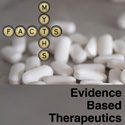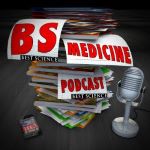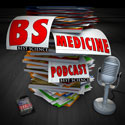In episode 178, Mike and James invite Tina Korownyk to discuss the evidence around antibiotic choice for respiratory infections. We discuss issues surrounding the choice of treatment for CAP and upper respiratory infections in a very atypical way by suggesting that covering for atypicals may not be necessary. As we typically do we digress at the end and inappropriately recommend amoxicillin for hypertension and erectile dysfunction.
Show notes
1) Systematic review of community acquired pneumonia
BMJ 2005;330:456–60
2) Hospitalized community acquired pneumonia broad versus narrow spectrum
Cochrane Library CD004418
Arch Intern Med 2005;165:1992–2000
3) Choice of antibiotic for CAP
“Currently available evidence from RCTs is insufficient to make evidence-based recommendations for the choice of antibiotic to be used for the treatment of CAP in ambulatory patients”
Cochrane CD002109
4) Duration of treatment for CAP
“The evidence of this review suggests that a short course (three days) of antibiotic therapy is as effective as a longer treatment (five days) for non-severe CAP in children under five years of age. However, there is a need for more well-designed RCTs to support our review findings”
Cochrane CD 005976
5) Effect of azithromycin and clarithromycin therapy on pharyngeal carriage of macrolide-resistant streptococci in healthy volunteers: a randomised, double-blind, placebo- controlled study
Lancet 2007;369:482–490
6) 1st-line versus 2nd line antibiotics for acute exacerbation of chronic bronchitis
Chest 2007;132:447-55
7) Amoxicillin versus amoxicillin/clavulanate in AECOPD
Int J Chron Obstruct Pulmon Dis. 2009;4:45-53.
8) Sinusitis
Pediatrics 1986;77:795–800
Pediatrics 2001;107:619–258. Canadian Bacterial Surveillance Network
http://microbiology.mtsinai.on.ca/research/cbsn/default.asp



